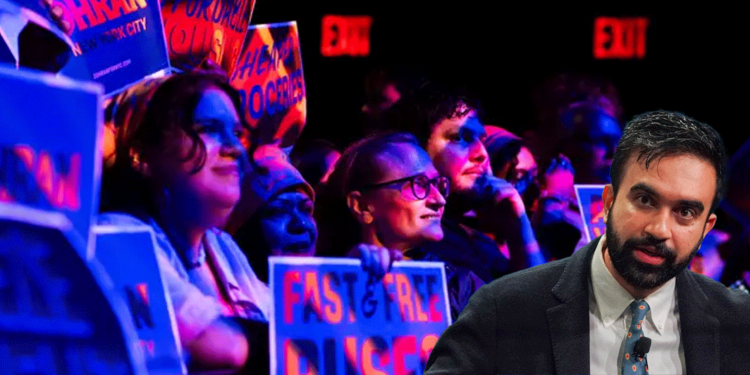
Shah J. Choudhury
As New York City’s mayoral race gains momentum, candidate Zohran Mamdani has ignited debate with his bold proposal: Free Buses for All. While some see the plan as a visionary step toward transit justice, others raise concerns about its financial sustainability and long-term impact on the city’s already strained public transit system.
The Core of the Proposal
Mamdani argues that the bus is the lifeline of working-class New Yorkers—especially the poor, immigrants, and marginalized communities.
“The bus goes where the city breathes. It passes the hospital, stops at the school, runs through the market. If these people can’t afford it, what kind of justice is that?”
His proposal: make all bus rides completely free, funded by the city or state budget—just like public libraries, schools, and parks.
Where Will the Money Come From?
According to MTA estimates, New York’s bus system brings in over $700 million annually in fare revenue. Removing fares would require a significant replacement of this income.
Mamdani believes the funding can come from redirecting subsidies that currently go to corporate tax breaks, law enforcement expansion, and underutilized infrastructure projects.
“If we can spend billions on police and tax breaks for developers, we can invest in the people who ride the bus every day,” Mamdani insists.
Expert Concerns
Transit experts and MTA officials remain cautious. Key concerns include:
• Increased ridership could overwhelm the existing fleet and routes.
• Without matching investments in infrastructure, service quality may decline.
• A revenue gap could indirectly affect subway services or other MTA projects.
What Do New Yorkers Think?
Public opinion is divided. Many commuters—especially essential workers—welcome the idea of free buses as a form of economic relief. But others are skeptical.
“Free is good, but what’s the point if the service becomes slower or more crowded?”
Community activists emphasize the need for a balanced approach, pairing fare elimination with fleet expansion, better staffing, and scheduling improvements.
The Big Picture
Zohran Mamdani’s proposal represents a bold, progressive vision grounded in equity. But for this plan to be successful, it will require:
• Sustainable budget support
• Cooperation between city, state, and MTA leadership
• And a commitment to maintaining and improving service standards
Free bus rides may sound like a gift—but every gift has a price.
The question is: Who will pay it—and is the system ready to adapt?





















